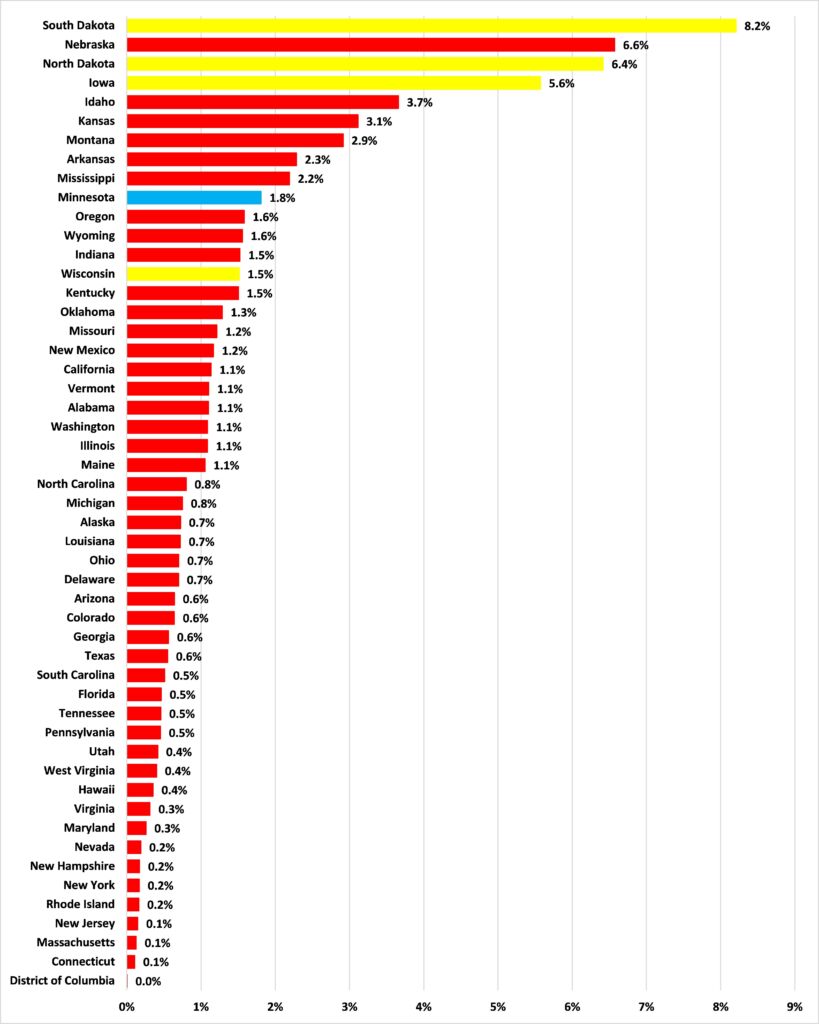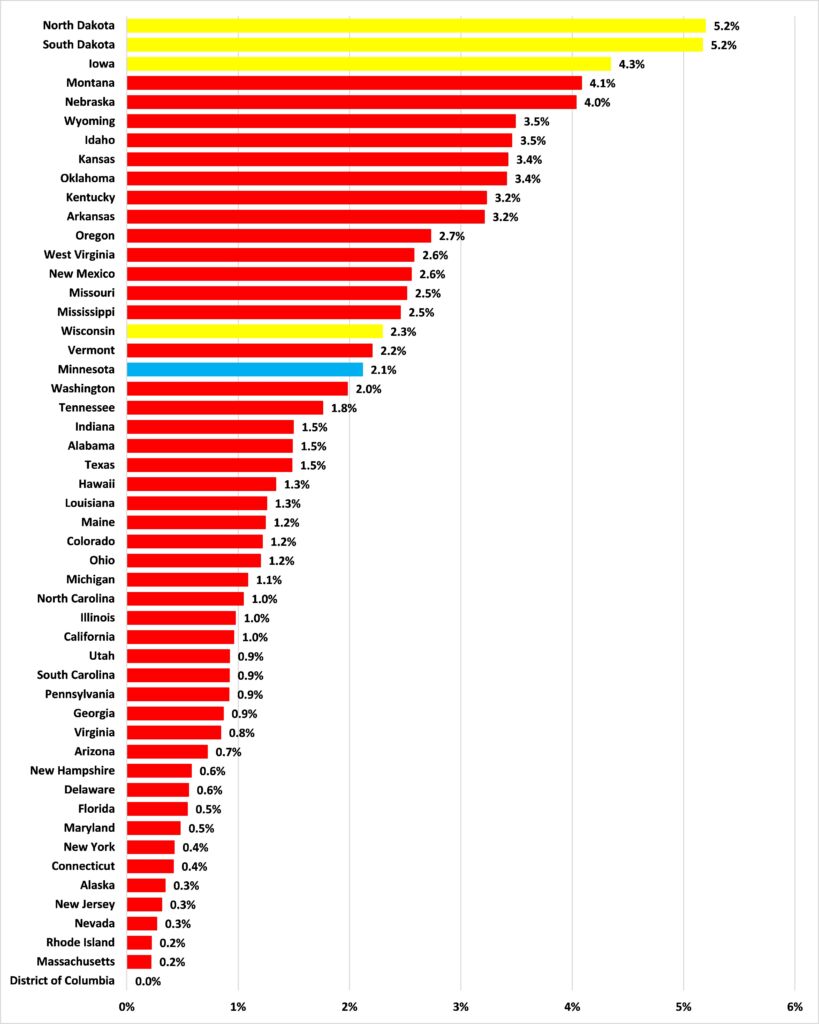A war on agriculture would hit North Dakota and its neighbors hardest
In November, my colleague Isaac Orr wrote about the Dutch government’s “war on agriculture“:
The government in the Netherlands is planning to conduct forced buyouts of 3,000 Dutch farms with the intention of closing them down to cut nitrogen emissions in half to meet the country’s climate goals. As many as 11,200 farms will have to close, and another 17,600 farmers will have to significantly downsize their livestock operations to meet these draconian targets.
If such policies were ever pursued in the United States the harm would be felt disproportionately by North Dakota and its neighbors.
Agriculture and GDP
The number one state for agriculture in the United States is California. In 2021, Bureau of Economic Analysis (BEA) numbers show that its “Agriculture, forestry, fishing and hunting” (agriculture) sector accounted for 18.5% of the United States’ total. But California has the largest economy in the United States and its agricultural sector accounts for just 1.1% of the state’s total Gross Domestic Product (GDP), only the 19th highest share in the country.
Figure 1 shows the fifty states and District of Columbia ranked by the share of their total GDP accounted for by the agricultural sector in 2021. It isn’t surprising, perhaps, that Midwestern states are at the top: indeed, three Midwestern states — North Dakota (6.4%), South Dakota (8.2%), and Iowa (5.6%) – are in the top four states for the agricultural share of their economy.
Figure 1: Agriculture as a share of GDP, 2021

Agriculture and employment
The same is largely true if we look at the BEA’s numbers for “Farm employment.”
Figure 2 shows the fifty states and District of Columbia ranked by the share of their total employment accounted for by farm employment in 2021. It shows that North Dakota is one of the three states with the highest share of total employment in farm employment (at 5.2%), alongside South Dakota (5.2%) and Iowa (4.3%).
Figure 2: Farm employment as a share of total employment, 2021

These numbers show that if the federal government decided to pursue anti-agriculture policies like those seen in the Netherlands in the name of fighting climate change, it is the Midwest that would be hit hardest. We must be on guard.